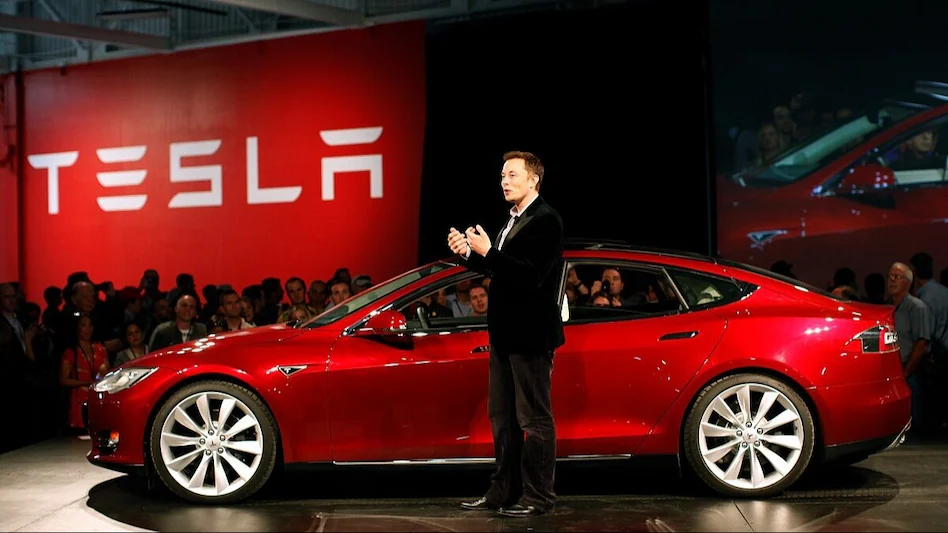NEW YORK — Tesla shares plunged 14% Thursday, wiping out $150 billion in market capitalization, after a high-profile feud erupted between President Donald Trump and Tesla CEO Elon Musk, escalating tensions that spooked investors and fueled concerns about regulatory retaliation against the electric carmaker.

The selloff came after Musk responded sharply to Trump’s criticism of his opposition to the administration’s tax bill, prompting Trump to accuse the billionaire of lashing out because the legislation ends federal incentives for electric vehicle purchases. Musk, who once called Trump his “First Buddy,” fired back on social media, denouncing the administration’s budget as a threat to innovation and clean energy.
The fallout marked one of the steepest single-day declines in Tesla’s history and further strained the relationship between Musk and Trump, a dynamic that had once appeared mutually beneficial.
The White House’s budget proposal aims to phase out the $7,500 EV subsidy by the end of 2025, a move that could cost Tesla as much as $1.2 billion annually, according to J.P. Morgan. A separate bill in the Senate targeting California’s EV mandates could slash another $2 billion in regulatory credit revenue.
Trump intensified the rhetoric Thursday on his Truth Social platform, writing: “The easiest way to save money in our Budget, billions and billions of dollars, is to terminate Elon’s governmental subsidies and contracts.”
Tesla’s troubles now stretch beyond the financial realm. The U.S. Department of Transportation and the National Highway Traffic Safety Administration (NHTSA) have already been scrutinizing Tesla’s driver-assistance system known as “Full Self-Driving,” especially after a fatal crash. Tesla is also seeking approval to deploy a fleet of steering-wheel-free robotaxis — a process that hinges on federal regulators.
Transportation Secretary Sean Duffy has moved to ease safety rules for autonomous vehicles, but analysts warn that Tesla, which relies solely on camera-based systems instead of lidar or radar, may be singled out under future regulations.
“With President Trump, being on his bad side always creates risk that you’re going to get personal retaliation,” said Seth Goldstein, an analyst at Morningstar. He noted that while regulatory retribution is uncertain, Tesla’s reliance on camera-only tech makes it vulnerable if lidar becomes a mandated standard.
The clash stunned Wall Street, which has been closely watching Musk’s pivot toward autonomous vehicle technology. On past earnings calls, Musk insisted that if investors didn’t believe in Tesla’s full self-driving vision, they should sell their stock.
“Elon’s politics continue to harm the stock,” said Dennis Dick, chief strategist at Stock Trader Network and a Tesla shareholder. “First he aligned with Trump, alienating progressive buyers. Now, he’s turned on Trump, which creates political and regulatory blowback.”
Tesla’s recent stock performance has reflected the volatility. After surging 169% following Musk’s endorsement of Trump in July 2024, shares tumbled 54% through early April as backlash and consumer boycotts took hold in the U.S., China and Europe. The latest drop erodes a chunk of Tesla’s gains, despite it remaining the world’s most valuable automaker with a market cap above $850 billion — still far ahead of Toyota’s $290 billion.
Ross Gerber, CEO of Gerber Kawasaki Wealth and Investment Management, said the dispute now poses a direct threat to Tesla’s operations. “This creates a negative force against Tesla that could derail its regulatory momentum and trigger more government scrutiny,” he said.
Following Thursday’s steep selloff, Musk’s personal fortune declined by approximately $27 billion, falling to $388 billion, according to Forbes. The billionaire has been a prominent face in the Department of Government Efficiency’s (DOGE) federal cost-cutting initiative, but reports suggest he has distanced himself from Washington to focus on Tesla and his other ventures.
Tesla, which trades at 150 times forward earnings, continues to draw criticism for its lofty valuation. “I am short Tesla. I don’t understand it. I don’t understand its valuation or its fundamentals. I think it’s overhyped,” said Bob Doll, chief investment officer at Crossmark Global Investments.
As Tesla braces for more turbulence, analysts caution that the political storm between Trump and Musk could cast a long shadow over the company’s growth plans, especially as it leans harder into autonomy and federal regulators take center stage.



